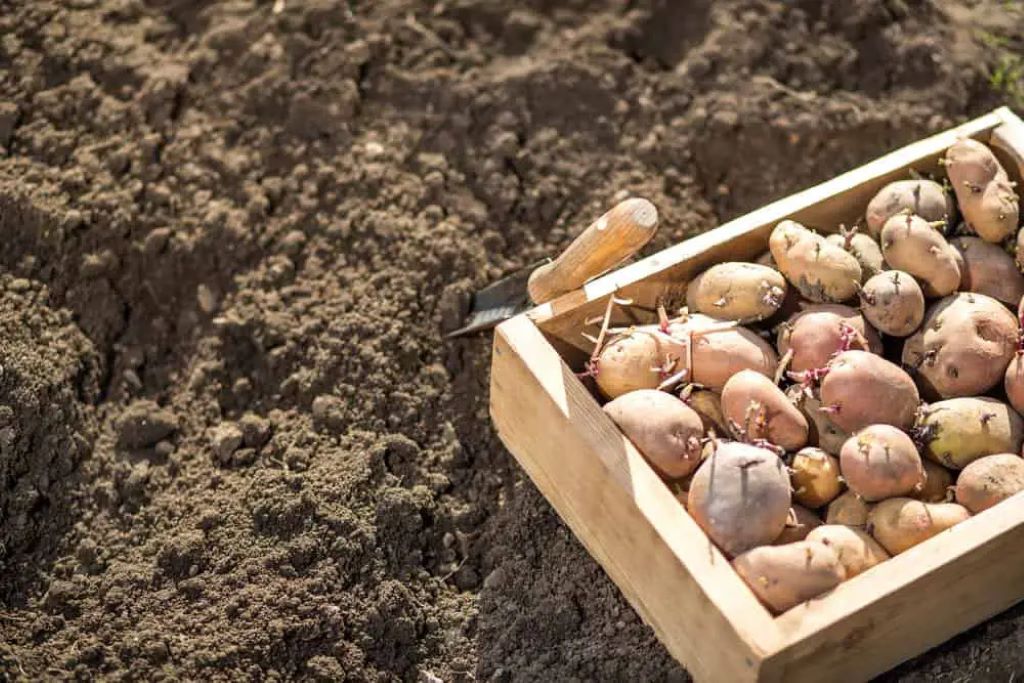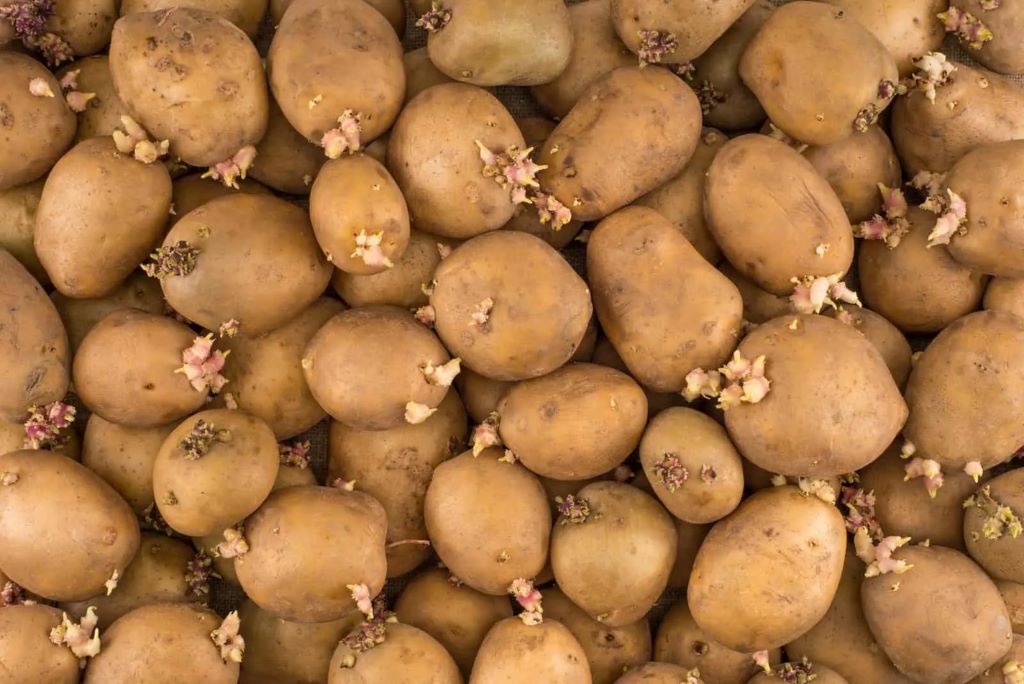Picture this: you’ve just bought a bag of fresh potatoes, intending to savor their delightful flavors in your meals. However, a few days later, you notice tiny sprouts emerging from the potatoes. It’s a common occurrence, and you might wonder, what makes potatoes sprout faster? Let’s dive into the fascinating world of potato science and uncover the reasons behind this phenomenon. The article is authored by Pudingarden.com.
The Start of the Sprouting Saga
Potatoes, as underground storage organs, encapsulate all the essential nutrients required for the growth of a new plant. Under the influence of suitable conditions, these potatoes will initiate the sprouting process, with the ultimate goal of establishing a fresh and vibrant plant. The choice of soil plays a pivotal role in this endeavor. Organic gardening soil for raised beds, enriched with its natural goodness, can significantly expedite the sprouting process. By providing the right medium, such as organic gardening soil for raised beds, you create an environment that encourages the potatoes to sprout more swiftly, setting the stage for a thriving new growth cycle.
But what exactly triggers this sprouting process?
Dormancy Breakage: The Trigger
Potatoes possess natural dormancy, a phase during which they rest and avoid sprouting. This dormancy is broken when potatoes are exposed to specific environmental cues. One of the main triggers is temperature. If you want to grow potatoes in a bucket, it’s important to keep in mind the temperature and other environmental factors that can affect their growth.
Temperature: A Key Player
Potatoes are highly sensitive to temperature, and it plays a crucial role in initiating the sprouting process. When exposed to warmer temperatures, potatoes are more likely to sprout faster.
The Role of Ethylene
Ethylene, a plant hormone, further accelerates sprouting. It’s naturally produced by potatoes and triggers the growth of sprouts. If you store potatoes alongside fruits that release ethylene, like apples, the sprouting process might speed up even more.
The Science Behind the Sprouts
As sprouts emerge from potatoes, intricate chemical reactions are at play. These reactions are a result of the stored nutrients and energy within the tubers.
Starch to Sugar Conversion
Stored starch in potatoes gets converted into sugars, which serve as fuel for the developing sprouts. Enzymes are the catalysts for this transformation, and they become more active as the sprouts grow.
Factors That Influence Sprouting
Several factors contribute to the speed at which potatoes sprout. Understanding these factors can help you control the sprouting process.
Light Exposure
Exposing potatoes to light, especially natural sunlight, can cause them to sprout faster. It’s advisable to store potatoes in a cool, dark place to slow down sprouting.
Humidity Matters
High humidity environments can lead to premature sprouting. Maintaining a dry environment helps to keep potatoes dormant for a longer time.
Can You Prevent Sprouting?
While you can’t entirely stop potatoes from sprouting, you can take steps to slow down the process.
Proper Storage
Storing potatoes in a cool, dark, and well-ventilated space can extend their dormancy period. A temperature of around 45°F (7°C) is ideal.
Removing Sprouts
If sprouts do appear, it’s a good idea to remove them promptly. This prevents the potatoes from diverting nutrients to the sprouts, helping to maintain their quality.
Embracing the Sprouting Cycle
While sprouting might seem like an inconvenience, it’s a natural process that indicates the vitality of the potato. The stored nutrients that support the sprouts also make potatoes a nutritious addition to your meals.
So, the next time you see those little sprouts, you’ll have a better understanding of what’s happening beneath the surface. Nature is at work, reminding us of the remarkable processes that sustain life.
FAQs
- Are sprouted potatoes safe to eat?
Yes, but it’s best to remove the sprouts and any green areas before consuming them. These areas can contain solanine, a compound that can be toxic in large amounts.
- Can I plant sprouted potatoes?
Absolutely! Planting sprouted potatoes can yield new potato plants. Make sure to cut the sprouted sections and plant them in a well-prepared garden bed.
- Why do some potatoes sprout faster than others?
The speed of sprouting can be influenced by the potato variety, storage conditions, and the presence of ethylene-producing fruits.
- Is it okay to eat the sprouts if they’re still small?
Small sprouts are generally safe to eat and can be removed easily. However, if the sprouts are large and the potato feels soft, it’s best to discard it.
- How can I store potatoes to prevent sprouting?
Store potatoes in a cool, dark, and dry place. Avoid storing them near ethylene-producing fruits and keep an eye on humidity levels.


